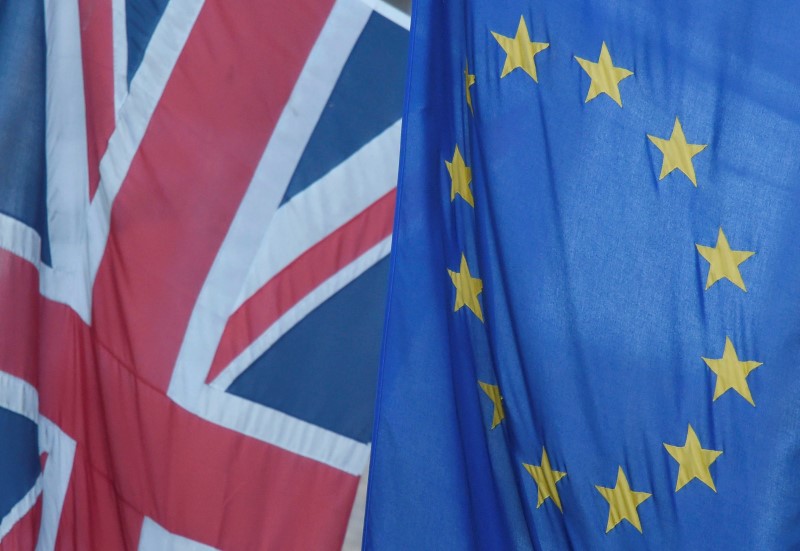By Robin Emmott
BRUSSELS (Reuters) - The European Union agreed on Tuesday to increase its military research budget for the first time since 2010 after Britain softened its opposition, a breakthrough that may signal British support for defence co-operation even once outside the bloc.
A day after agreeing a new defence plan aimed at making Europe less reliant on U.S. help, EU governments increased the 2017 funding of the European Defence Agency, which helps countries develop aircraft and other assets, by 1.6 percent, in line with inflation and taking the modest budget to 31 million euros ($33 million).
While well below the 6.5 percent rise the agency wanted, it was the first time in six years that Britain has not blocked an increase at the agency whose budget has shrunk 15 percent in real terms, EU officials said.
"It is still a symbolic increase," EU foreign policy chief Federica Mogherini told a news conference.
"It is a clear demonstration of all EU member states, including the United Kingdom, to increase the budget of the agency to reflect the work to be done."
EU officials said it could mean that Britain, which has opted to quit the European Union, may seek to work closely with the bloc on defence even after it leaves, given security threats ranging from Islamist militants to a more hostile Russia.
A spokesman for Britain's Defence Ministry stressed that the increase keeps the agency's budget at 2016's level in real terms, but added: "We have finally seen progress on our demands for reform and better performance."
In the late 1990s, Britain's then-prime minister Tony Blair helped launch the closer defence co-operation that led to the European Defence Agency with France's Jacques Chirac.
The agency aims to help European governments decide on and develop the military assets they need, which remain in national hands after they are ready. Those assets also boost the U.S.-led NATO alliance. Twenty-two EU nations are also members of NATO.
However, deep-rooted British scepticism about European integration and the impact of the global financial crisis turned off London's enthusiasm.
The election of Donald Trump as U.S. president has added to what was an already a growing ambition among many EU governments to focus on defence co-operation.
Trump said that, as president, he may not come to the aid of countries that did not spend enough on defence, appearing to break with a 67-year U.S. commitment to protect Europe.
Outgoing U.S. President Barack Obama will seek to reassure allies in his farewell European tour this week, but diplomats say there has been a shift in EU governments' thinking.

"The mood has changed because of Syria, instability in Africa and because of Russia," said Urmas Paet, Estonia's former foreign minister who is now a member of the European Parliament's foreign affairs committee.